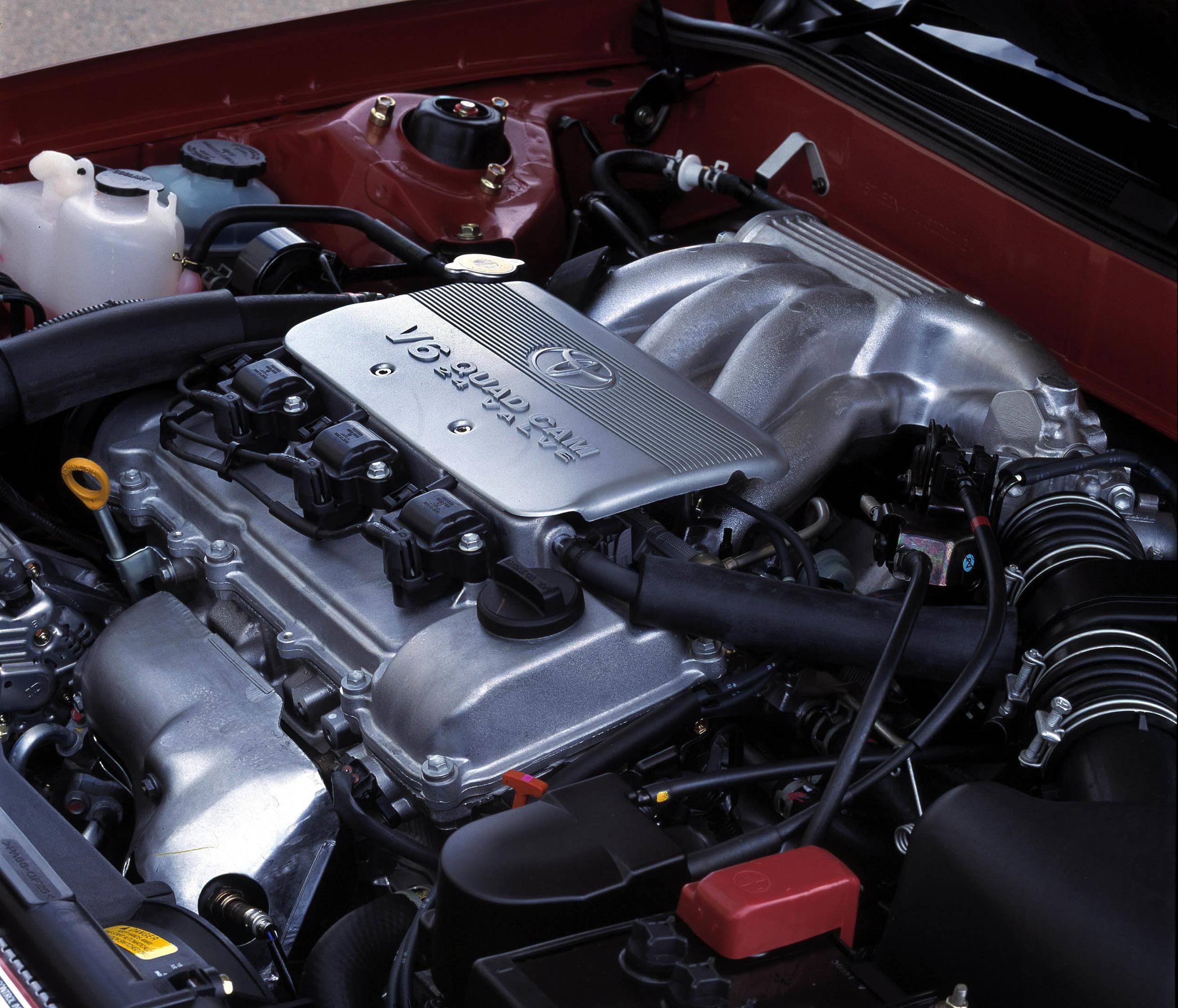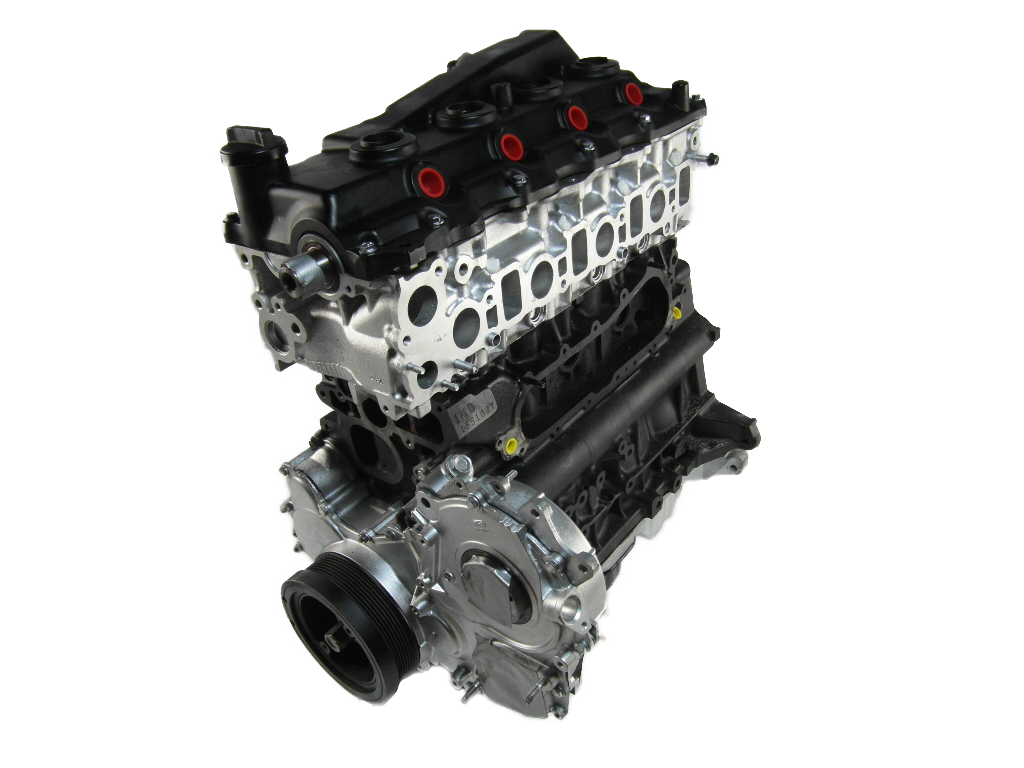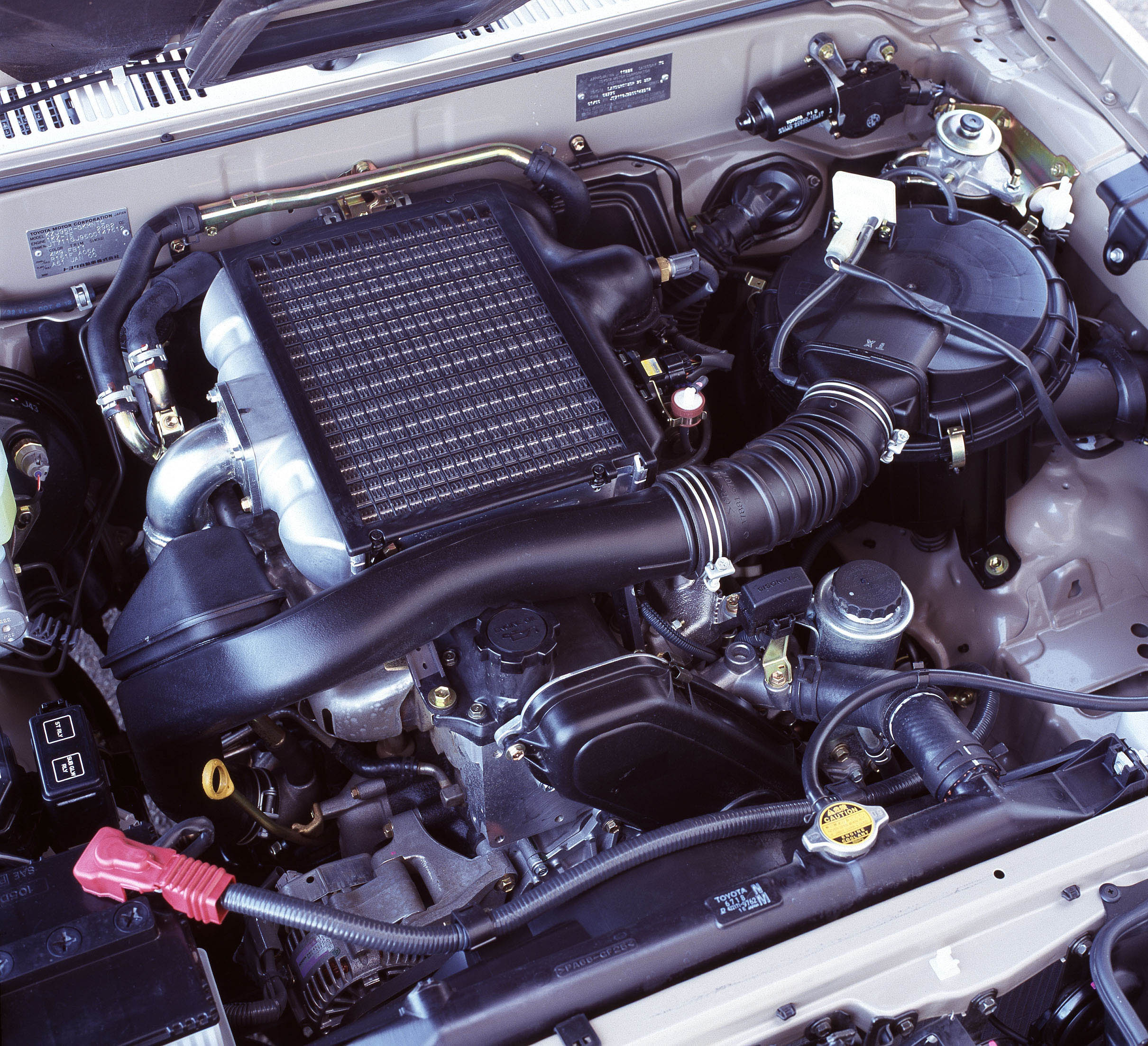General description
The Mercedes-Benz OM651 was a four-cylinder turbo-diesel engine that was first introduced in October 2008 and replaced the four-cylinder OM646 and six-cylinder OM642 engines. The OM651 engine was a completely new design that was pre-assembled at Mercedes-Benz’s Untertürkheim-Stuttgart plant and completed at MDC Power GmbH in Kölleda.
The OM651 engine had a cast iron block, an alloy cylinder head, common-rail direct injection, a forged crankshaft and connecting rods, aluminium pistons, double overhead camshafts (driven via a combination of toothed cogs and a short simplex chain), four valves per cylinder (actuated via roller rocker arms), an intercooler, a compression ratio of 16.2:1 and water-cooled exhaust gas recirculation.
For smoother running, the OM651 engine also featured a Lanchester balancer which consisted of two counter-rotating shafts that turned in a cassette beneath the crankcase and were driven by crown wheels. Furthermore, friction was minimised by mounting the shafts on two needle bearings and a deep-grove ball bearing. To minimise fuel consumption, the OM651 engine had a high-pressure fuel pump with suction throttling to adjust the flow as needed and an on-demand water pump.
Injection systems
Initially, the OM651 engine was available with two injection systems –
- Engines producing up to 105 kW had magnetically-actuated solenoid injectors which provided up to four injections per combustion cycle (up to two pre-combustion injections, followed by the main injection and a post-combustion injection if required); and,
- Engines producing more than 125 kW (the 220 CDI BlueEfficiency and 250 CDI BlueEfficiency) had Delphi piezo injectors in which the injector needle was actuated directly so that five injections per combustion cycle were possible. From around mid-2012, however, the Delphi piezo injectors were replaced by solenoid injectors (see ‘Problems’, below).
Single and twin turbochargers
The OM651 engine was available with single and twin turbocharger variants –
- Engines producing up to 120 kW had a single IHI turbocharger with variable turbine geometry; and,
- Engine producing more than 125 kW (the 220 CDI BlueEfficiency and 250 CDI BlueEfficiency) had two Borg Warner turbochargers: a small high-pressure turbo and a large low-pressure turbo that operated in series. At low engine speeds, the compact high-pressure turbo operated in isolation. From medium engine speeds upwards, however, the charge-air pressure control valve of the low-pressure turbocharger opened wide enough to enable this turbocharger to take over turbine operations. To control boost pressure, both turbochargers were fitted with wastegate valves.
| Engine | Capacity | Peak power | Peak torque | Model | Years |
|---|---|---|---|---|---|
| OM651 DE 18 LA red. | 1796 cc | 80 kW at 3200-4600 rpm | 250 Nm at 1400-2800 rpm | W176 A 180 CDI | 2012-13 |
| W246 B 180 CDI | 2011-13 | ||||
| OM651 DE 18 LA | 1796 cc | 100 kW at 3600-400 rpm | 300 Nm at 1600-3000 rpm | C117 CLA 200 CDI | 2013-14 |
| W176 A 200 CDI | 2012-14 | ||||
| W246 B 200 CDI | 2011-14 | ||||
| OM651 DE 22 LA red. | 2143 cc | 70 kW at 3800 rpm | 250 Nm at 1400-2400 rpm | W639 Vito 110 CDI | 2010-14 |
| 88 kW at 2800-4600 rpm | 300 Nm at 1400-2800 rpm | W204 C 180 CDI | 2010-13 | ||
| 100 kW at 3400-4000 rpm | 300 Nm at 1400-3000 rpm | C117 CLA 200 CDI | 2014-on | ||
| X156 GLA 200 CDI | 2013-on | ||||
| W176 A 200 CDI | 2014-on | ||||
| W246 B 200 CDI | 2014-on | ||||
| 100 kW at 2800-3000 rpm | 360 Nm at 1600-2600 rpm | W204 C 200 CDI | 2009-13 | ||
| W212 E 200 CDI | 2009-16 | ||||
| W639 Viano, W639 Vito 116 CDI |
2010-14 | ||||
| 105 kW at 3200 rpm | 350 Nm at 1200-2800 rpm | X204 GLK 200 CDI | 2010-on | ||
| OM651 DE 22 LA | 2143 cc | 120 kW at 3800 rpm | 360 Nm at 1400-2400 rpm | W639 Viano, W639 Vito 116 CDI |
2010-14 |
| 125 kW at 3600-4400 rpm | 350 Nm at 1600-3200 rpm | X156 GLA 220 CDI | 2013-on | ||
| 125 kW a 3400-4000 rpm | 350 Nm at 1400-3400 rpm | C117 CLA 220 CDI | 2013-14 | ||
| W176 A 220 CDI | 2012-on | ||||
| W246 B 220 CDI | 2012-14 | ||||
| 125 kW at 3400-4000 rpm | 400 Nm at 1400-2800 rpm | W204 C 220 CDI | 2009-13 | ||
| W205 C 220 BlueTEC | 2014-on | ||||
| A207/C207 E 220 CDI | 2009-14 | ||||
| A207/C207 E 220 BlueTEC | 2014-on | ||||
| W212 E 220 CDI | 2009-14 | ||||
| W212 E 220 BlueTEC | 2014-on | ||||
| C218 CLS 220 BlueTEC | 2014-on | ||||
| 130 kW at 3400-4000 rpm | 350 Nm at 1400-3400 rpm | C117 CLA 220 CDI | 2014-on | ||
| W246 B 220 CDI | 2014-on | ||||
| 150 kW at 4200 rpm | 500 Nm at 1600-1800 rpm | W166 ML 250 BlueTEC | 2011-on | ||
| R172 SLK 250 CDI | 2012-on | ||||
| W204 C 250 CDI | 2008-13 | ||||
| W205 C 250 BlueTEC | 2014-on | ||||
| A207 E 250 CDI, C207 E 250 CDI |
2009-14 | ||||
| A207 E 250 BlueTEC, C207 E 250 BlueTEC |
2014-on | ||||
| W212 E 250 CDI | 2009-14 | ||||
| W212 E 250 BlueTEC | 2014-16 | ||||
| W212 E 300 BlueTEC Hybrid | 2012-16 | ||||
| C218 CLS 250 CDI | 2011-14 | ||||
| C218 CLS 250 BlueTec | 2014-on | ||||
| W221 S 250 CDI | 2011-13 | ||||
| W222 S 300 BlueTEC Hybrid | 2014-on |
OM651 Problems
OM651 Delphi injector failure
The Delphi piezo injectors that were fitted for the 125 kW to 150 kW engines (i.e. the 220 CDI BlueEfficiency and 250 CDI BlueEfficiency) experienced a high failure rate, generally occurring beyond 50,000 kilometres. If the injectors failed, the engine warning light would illuminate, the vehicle would enter ‘limp home’ mode and the engine run unevenly. Initially, revised piezo injectors were introduced. Subsequently, however, Mercedes-Benz initiated a customer service action whereby the original Delphi piezo injectors were replaced with magnetic solenoid injectors, a new ECU was installed, a fuel return line was retrofitted and the engine cover was changed. From around mid-2012, Mercedes-Benz ceased using piezo injectors for these vehicles and used magnetically-actuated solenoid injectors instead.
OM651 timing chain/tensioner wear
At higher mileages, there have been reports of wear of the simplex timing chain and/or chain tensioner. Since the chain is installed on the transmission side of the engine, access is restricted and replacement is expensive.














